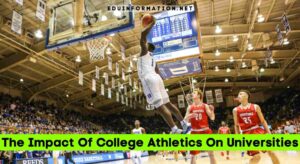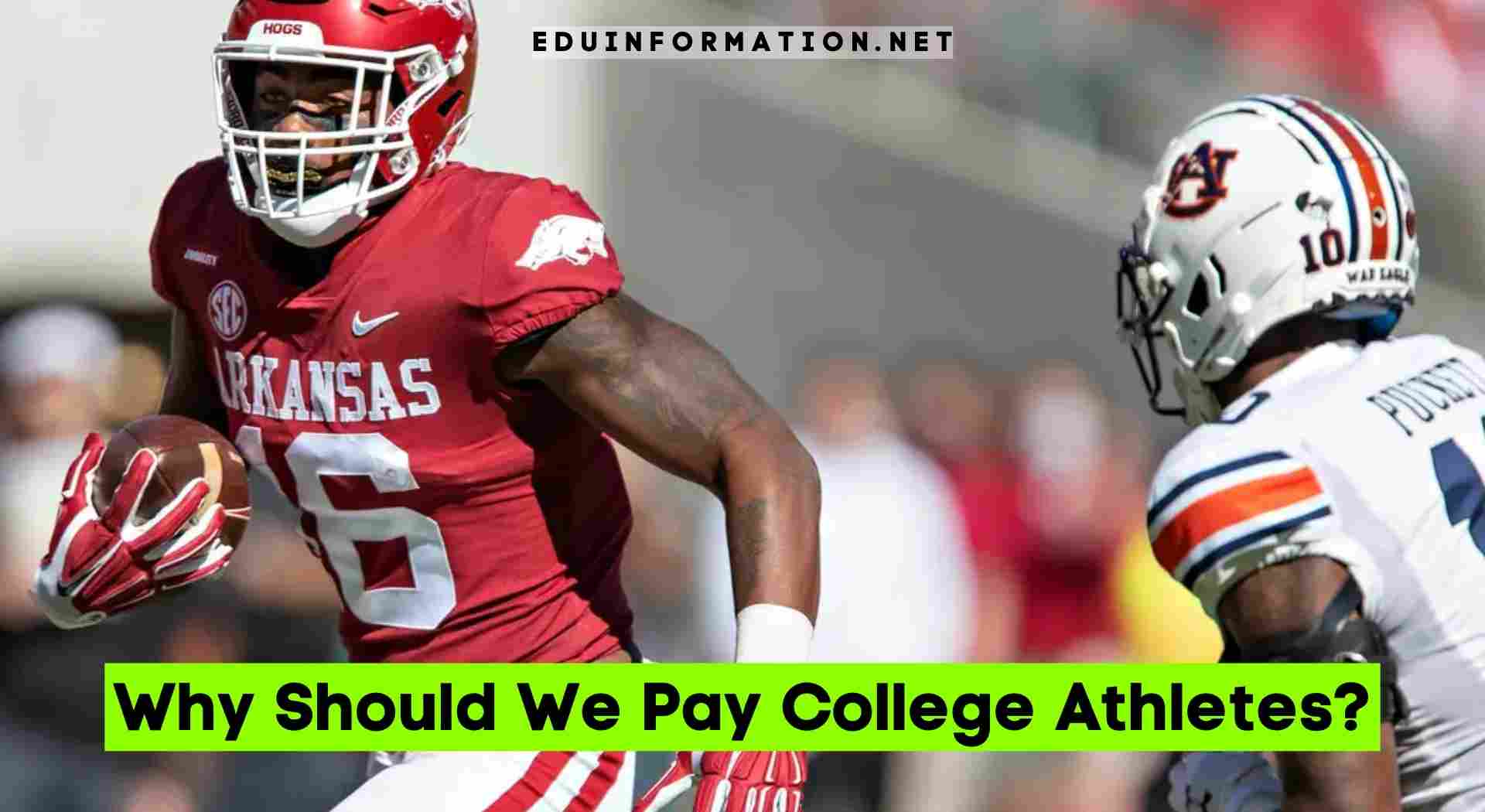College athletes should be paid because their participation generates significant revenue and they dedicate a substantial amount of time and effort to their sport. In recent years, the issue of whether or not college athletes should be compensated has sparked widespread debate.
Many argue that these athletes bring in enormous profits for their respective institutions, often through ticket sales, merchandise, and television contracts. Additionally, college athletes often have rigorous training schedules and face significant physical and mental demands, which can greatly impact their academic performance and overall well-being.
Consequently, paying college athletes would recognize their contributions to the sports industry while also providing them with financial support and a fairer opportunity to balance both academics and athletics.
The Impact Of College Athletics On Universities
College athletics have a significant impact on universities, but the question arises: Should we pay college athletes? This debate continues as people consider the financial benefits and the ethical considerations of compensating these student-athletes.

The Financial Benefits Of College Athletics For Universities:
- Increased revenue: Successful college athletic programs generate substantial revenue through ticket sales, television rights, merchandise, and sponsorships. These funds can be reinvested into the university to support academic programs, scholarships, and facility improvements.
- Boost in enrollment: A thriving athletic program attracts prospective students, leading to increased enrollment. The prospect of attending a university renowned for its athletic achievements can be a deciding factor for many applicants.
- Fundraising opportunities: College sports provide a platform for fundraising activities, such as alumni donations and booster club memberships. The passion and loyalty of fans often translate into essential financial support for the university.
The Exposure And Publicity College Athletics Bring To Universities:
- Television and media coverage: College athletic events, particularly those featuring prominent teams and rivalries, attract significant media attention. Television broadcasts, newspaper articles, and online coverage provide valuable exposure for the university, reaching audiences far and wide.
- National recognition: Successful college athletic programs gain national recognition, putting the university on the map. This recognition extends beyond sports, highlighting the institution’s academic offerings and overall reputation.
- Alumni engagement: College athletics serve as a rallying point for alumni, fostering loyalty and connection to their alma mater. Alumni engagement and support benefit the university in various ways, from financial contributions to mentorship opportunities.
The Implications On University Branding And Reputation:
- Enhanced prestige: A strong athletic program enhances the overall prestige and brand image of a university. The success and achievements of student-athletes reflect positively on the institution, elevating its reputation in the eyes of stakeholders and the public.
- Community pride: As college athletics often garner significant local support, universities become an integral part of the community. This sense of pride and affiliation positively impacts the university’s perception within the local community and beyond.
- Recruitment and retention: Having a well-known athletic program can attract high-caliber students and faculty members, contributing to the university’s academic excellence. Additionally, the sense of pride and belonging associated with successful athletics can contribute to student retention rates.
College athletics have a profound impact on universities, enhancing their financial stability, exposure, and branding. The successes achieved on the field extend far beyond sports, benefiting the entire institution and fostering a strong sense of pride in the university’s community.
Potential Solutions For Paying College Athletes
Paying college athletes is essential as it provides potential solutions for fair compensation, recognizing their dedication and skill while preventing exploitation. Proper remuneration can support athletes financially and make their college experience more fulfilling.

The Possibility Of Allowing Endorsements And Sponsorships:
- College athletes could be allowed to sign endorsement deals with brands and companies.
- This would enable athletes to earn income through sponsorships for products or services.
- Endorsements and sponsorships could be regulated to ensure fairness and prevent exploitation.
- Athletes would have the opportunity to capitalize on their brand and popularity.
- This solution could provide a source of income for athletes without relying solely on their universities.
Exploring Revenue-Sharing Models:
- Implementing revenue-sharing models could be a potential solution for paying college athletes.
- Universities could allocate a portion of the revenue generated from television deals, merchandise sales, and ticket sales to the athletes.
- This approach would ensure that athletes receive financial compensation for their contribution to the revenue stream.
- Revenue-sharing models would provide a more equitable distribution of earnings among all stakeholders.
- Proper guidelines and mechanisms would need to be established to determine the fair distribution of revenue.
Discussing The Challenges And Logistics Of Paying College Athletes:
- Implementing a system to pay college athletes comes with several challenges and logistical considerations.
- Determining the appropriate amount of compensation for athletes based on their contribution could be complex.
- Ensuring compliance with regulations and maintaining a level playing field among colleges and universities would be essential.
- Creating a system to administer and regulate payments would require careful planning and oversight.
- Balancing financial sustainability for universities with fair compensation for athletes is a crucial aspect to consider in this discussion.
Conclusion
In light of the arguments presented in this blog post, it becomes evident that paying college athletes is a crucial step toward rectifying the longstanding inequalities that exist within collegiate sports. By providing monetary compensation, institutions would not only demonstrate their commitment to supporting athletes but also acknowledge the immense time and effort they dedicate to their craft.
Such financial support would alleviate the burden faced by many student-athletes, enabling them to focus on their education and sports without crippling financial stress. Additionally, compensating college athletes would create a more level playing field, as it would help prevent unfair advantages gained through illegal payments or endorsements.
Ultimately, paying college athletes not only aligns with the principles of fairness and equity but also ensures a more sustainable future for collegiate sports as a whole. By implementing changes at the institutional level, we can help pave the way for a more inclusive and rewarding experience for all college athletes.

